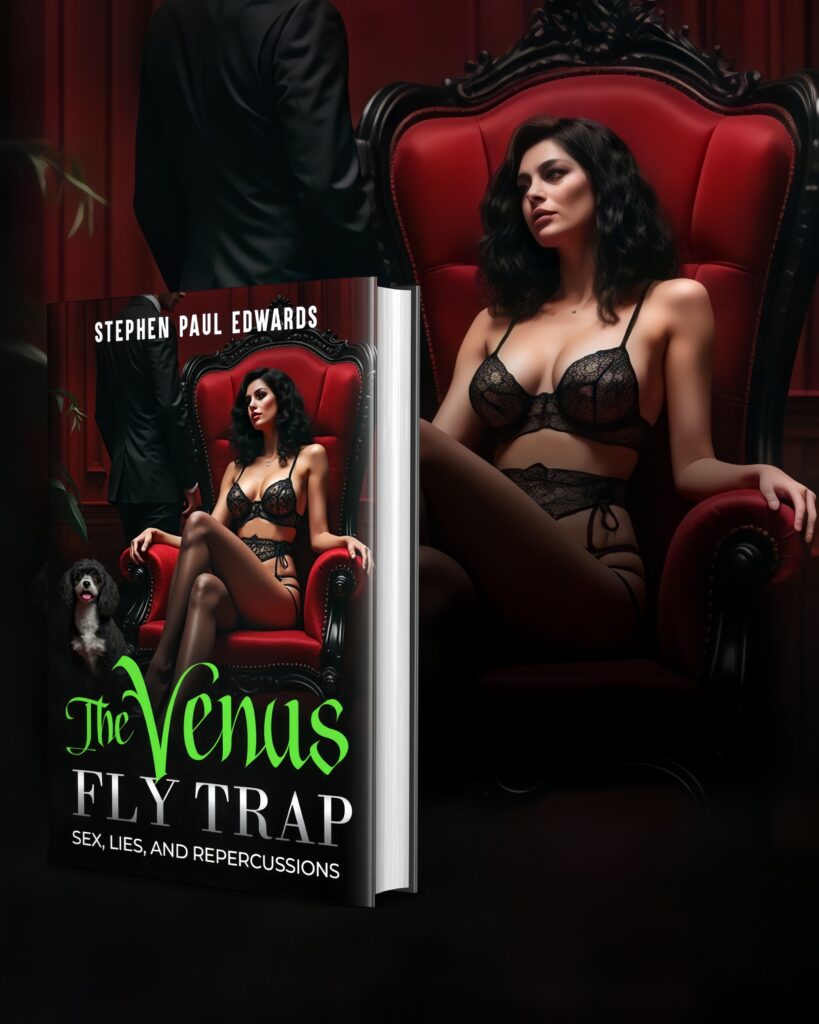
Truth is Stranger than Fiction (and Why That Matters)
There’s a saying that truth is stranger than fiction. After writing The Venus Fly Trap, I can tell you: that saying doesn’t even begin to cover it.
People who’ve read early chapters often ask, “Did all this really happen?” They assume I must have exaggerated — surely no one stumbles into this much chaos, lust, betrayal, and hilarity in one lifetime. But I didn’t exaggerate. In fact, if anything, I toned some of it down.
Life, as it turns out, doesn’t need a scriptwriter. It just needs someone honest enough to put it on the page.
The Problem With Fiction
Here’s the irony: in fiction, you have to make things believable. If a character suddenly behaves irrationally or events spiral too wildly, readers cry foul: “That would never happen!”
In memoir, the opposite is true. Life doesn’t follow neat arcs or tidy logic. We do irrational things. We fall for the wrong people. We sabotage ourselves just as happiness is within reach. In fiction, you’d call it bad writing. In life, you call it Tuesday.
That’s why I chose memoir instead of trying to disguise my story in a novel. Fiction would have demanded I smooth the edges. Memoir allowed me to show the jagged, raw, absurd truth exactly as it unfolded.
The Shock of Recognition
One of the most surprising responses I’ve received is readers saying, “This is outrageous, but it feels familiar.”
That’s the power of truth. Even when the details are wildly specific — the rooftop seductions, the misadventures, the fallout — the emotions are universal. We all know what it’s like to want someone we shouldn’t. To lie when honesty would have been easier. To laugh at ourselves even as we fall apart.
Memoir works not because it’s my story, but because it’s a mirror for yours.
Why We Doubt True Stories
We doubt memoirs because we doubt ourselves. If I admit I’ve done something outrageous, readers think, “Surely he must be embellishing — because if he’s not, then maybe my own secrets are just as wild.”
It’s easier to believe in tidy fiction than to face the messy truth of our lives. But here’s the thing: it’s the mess that makes us human.
Comedy in the Chaos
Another reason truth feels stranger than fiction: it’s funnier. Comedy comes from surprise, and life is the greatest surprise machine ever built.
In The Venus Fly Trap, some of the most painful experiences were also the most absurd. Looking back, I couldn’t help but laugh — not because the pain wasn’t real, but because humor is how we survive.
Fiction often has to write jokes in. Memoir just has to tell the truth. The comedy is already there, hidden in the disaster.
Why It Matters
So why does it matter that truth is stranger than fiction? Because truth connects.
We live in an age of curation — airbrushed photos, carefully edited feeds, polished public lives. Fiction, in many ways, has become our default setting. We present characters of ourselves.
But the moment we tell the truth — the raw, unfiltered truth — people lean in. They recognize themselves in it. They breathe a sigh of relief: “Finally, someone said it.”
That’s the power of memoir. That’s why I wrote The Venus Fly Trap.
What You’ll Find Between the Pages
If you pick up my book, don’t expect a perfect arc where every lesson is wrapped up in a bow. Expect contradictions. Expect laughter in the middle of heartbreak. Expect stories so wild you’ll wonder if I made them up — and then realize they ring true because you’ve lived your own versions, even if in different forms.
Most of all, expect honesty. Because honesty is more gripping than any plot twist.
Final Thought
Truth really is stranger than fiction. And when you stop fighting that — when you lean into it — you discover the stories worth telling.








